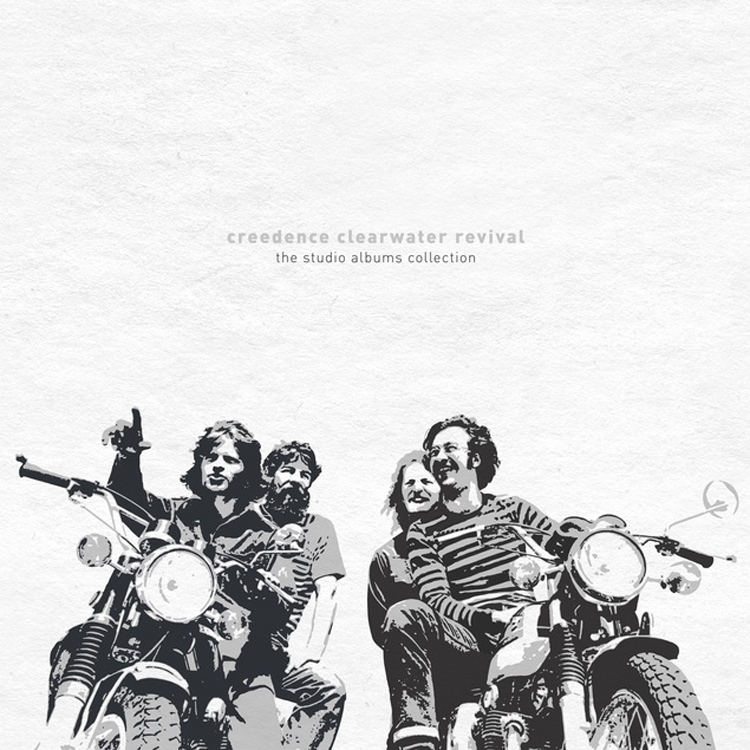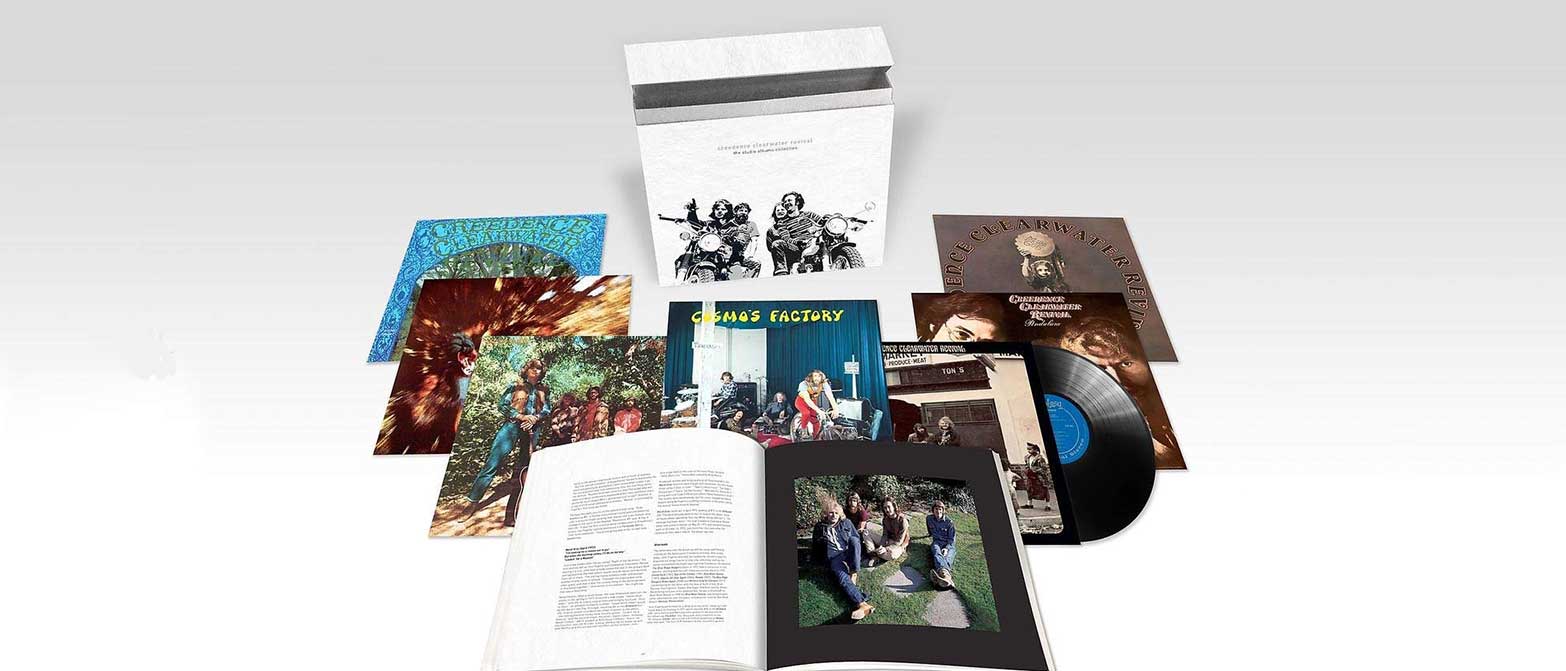
Creedence Clearwater Revival
Bayou Country
Green River
Willy and the Poor Boys
Cosmo's Factory
Pendulum
Mardi Gras
Given that there are several Creedence box sets already available, and also numerous ‘greatest hits’ packages, might this straight reissue of their seven studio albums – from their self-titled debut (1968) to the distinctly patchy swansong Mardi Gras (1972) – be a mixed blessing?
Well, it is vinyl, and it does get the deluxe treatment, namely a half-speed master job that improves on the quality of previous CD sets that included more bonus material (this has none) but indifferent clarity.
There’s the obligatory scholarly book and authentic artwork and ephemera. The crux of the matter lies in the usually great sound and the thrilling impact of rock standards like Fortunate Son, Born On The Bayou, Bad Moon Rising, Travelin’ Band and their chooglin’ ilk, classic songs that enabled CCR to sell millions, tot up the platinum and establish themselves as the biggest band around in 1970/71.
A move towards band democracy didn’t maintain that standard, although they did bow out with the El Cerrito anthem Sweet Hitch-Hiker before disintegrating into a world of litigation: John Fogerty vs The Rest.
At least here they can be remembered for the good times. One for completists, but a cheeky rarities album would have improved their lot.

